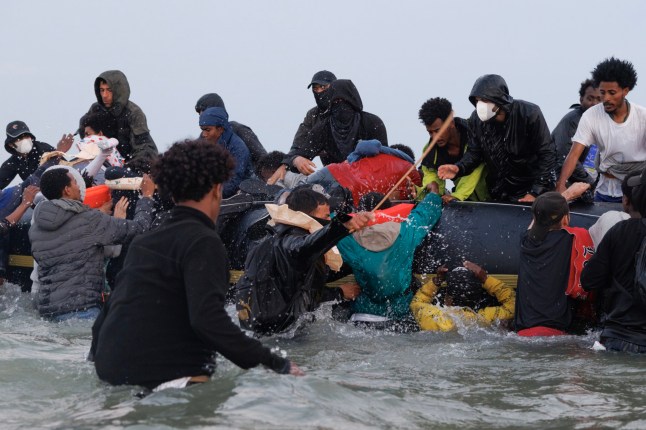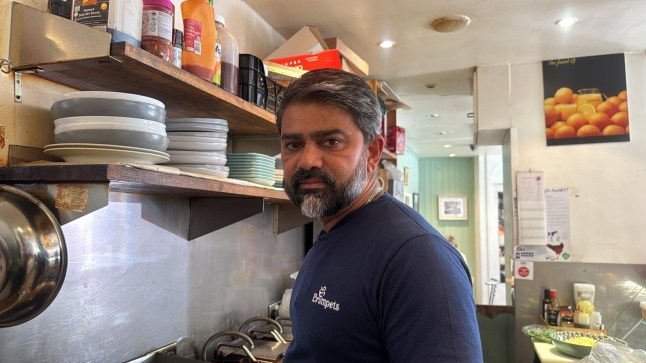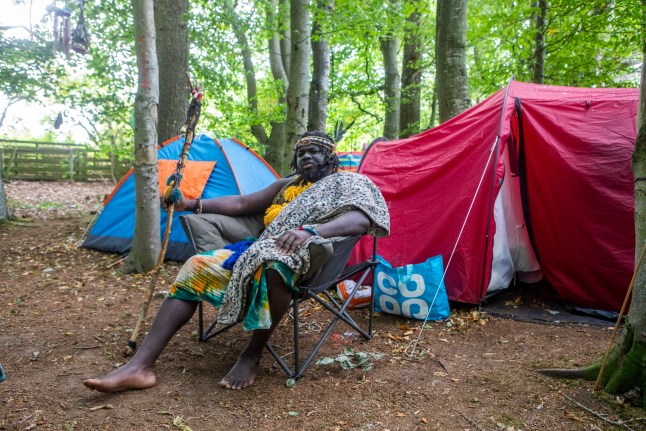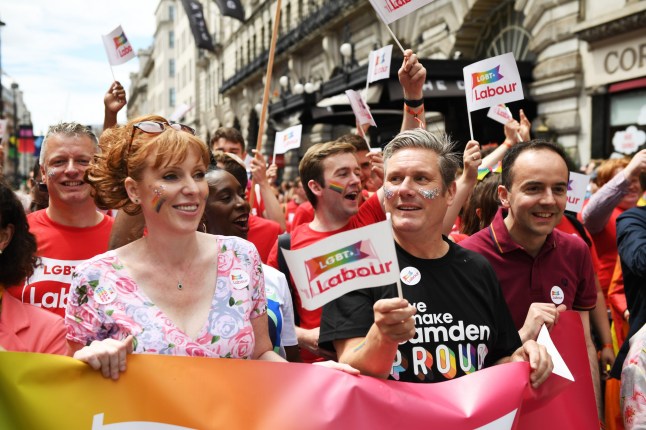
Political parties have been banned from marching with LGBTQ+ people at four of the UK’s largest Pride parades across the summer.
Birmingham, Brighton, London and Manchester Pride organisers announced the ban yesterday, saying they are standing ‘in solidarity’ with trans people who have been ‘abandoned’.
The Supreme Court ruled last month that the definition of woman in equality law is based on ‘biological sex’.
Days later, Downing Street confirmed Prime Minister Keir Starmer does not believe trans women are women.
The Pride groups, which include Pride in London, the largest Pride march in the UK, said they are refusing to ‘platform those who have not protected our rights’.
The four said: ‘The recent ruling by the UK Supreme Court to exclude trans women from the definition of the term “woman” underscores the urgent need for immediate action.
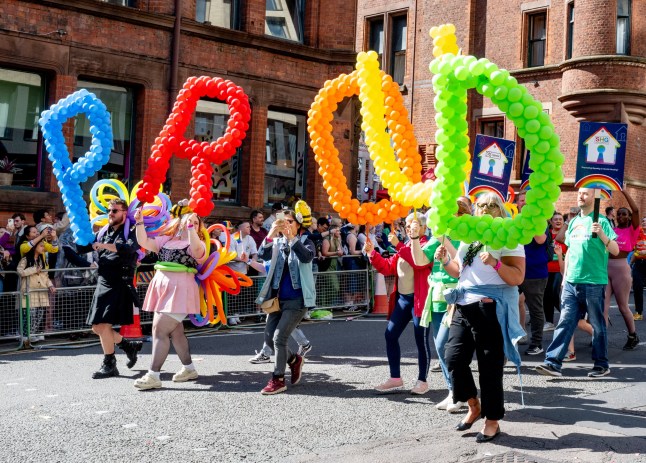
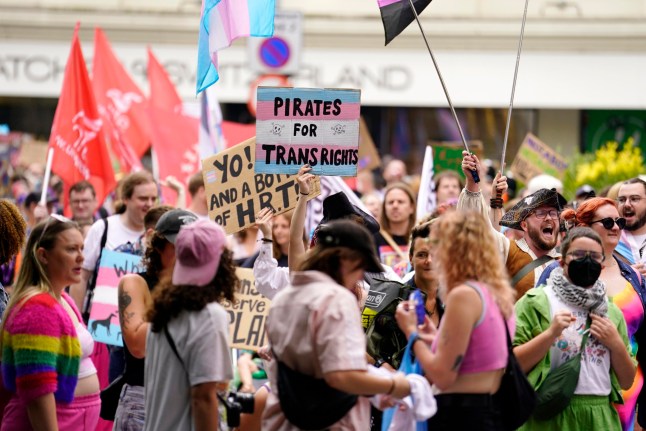
‘In this moment, we choose to stand firmer, louder, and prouder in demanding change that protects and uplifts trans lives.
Join Metro’s LGBTQ+ community on WhatsApp
With thousands of members from all over the world, our vibrant LGBTQ+ WhatsApp channel is a hub for all the latest news and important issues that face the LGBTQ+ community.
Simply click on this link, select ‘Join Chat’ and you’re in! Don’t forget to turn on notifications!
‘That is why this year, we are collectively suspending political party participation in our Pride events.’
The Pride organisers said the ruling was the latest in a ‘disturbing global trend’ of trans rights being rolled back.
They pointed to Hungary banning LGBTQ+ Pride events and the wave of US states outlawing trans youth healthcare and banning trans young people from playing sports as a warning to the UK.
The four said: ‘The UK must not follow this path of regression. Instead, it must rise as a global leader in human rights and equality.’
Organisers added: ‘We demand real commitments and measurable progress. The Pride movement was born from protest, and we must continue to embody that spirit with intention and urgency.
What did the Supreme Court ruling on the defintion of woman say?
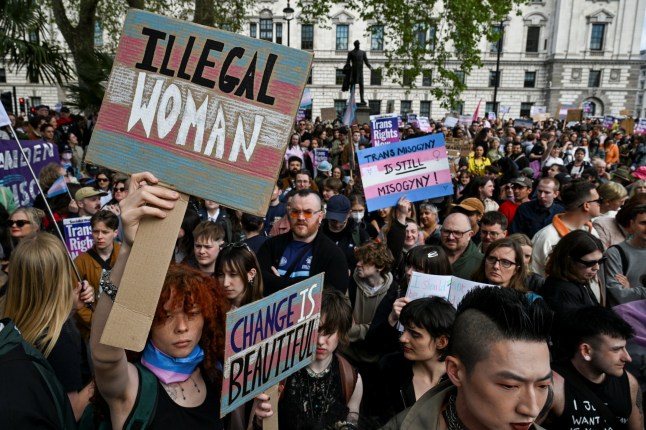
‘The unanimous decision of this court is that the terms “woman” and “sex” in the Equality Act 2010 refer to biological women and biological sex.’
This is what Lord Patrick Hodge, deputy president of the court, said when announcing the ruling in April.
The court was deciding whether trans people can be included under the protected characteristic of ‘sex’ as well as for ‘gender reassignment’ under the 2010 Equality Act.
But judges said that the word ‘sex’ means ‘biological sex’, as in what people are assigned at birth.
Lord Hodge stressed that the judgment is not a ‘triumph of one or more groups in our society at the expense of another’, as trans people would continue to have protections against discrimination.
Some sports associations, police forces and political buildings say they will treat trans women differently from women in response to the ruling, such as by banning trans women from using single-sex spaces. While others, such as LGBTQ+ venues, have vowed to defy the ruling.
‘To move forward, we need more than promises.
‘We need every political party to stand unequivocally with every member of the LGBTQ+ community, and to centre the voices of trans people in policy, practice, and public life.’
Sir Keir, former Conservative leader Boris Johnson, Lib Dem leader Sir Ed Davey and Carla Denyer, co-leader of the Green Party, have all marched in Pride parades.
LGBT+ Liberal Democrats, the party’s queer member wing, said the group ‘firmly believes that Pride is a protest’.
It said: ‘While we understand Pride organisers’ frustrations with Labour and the Conservatives’ swithering on LGBT+ and especially trans+ rights of late, we are sickened to our core to be lumped together with them in a blanket suspension on political parties attending major Prides this year.
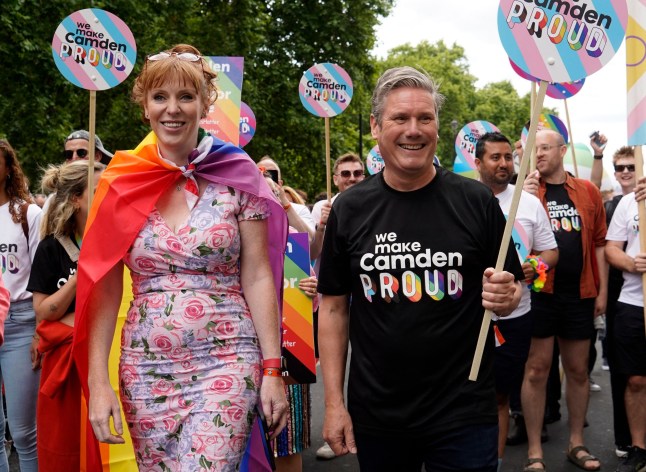
The statement added: ‘We look forward to a constructive dialogue with Pride organisers so we can come back bigger and better, while those parties who pander to bigotry and hatred can be left in the past where they belong.’
TransActual director jane fae told Metro ‘It is a shame to see political parties excluded from Pride. That said, there is a strong argument that this was not before time. The history of Pride is rooted in protest and civil disobedience. Not ‘making nice’ with populist politicians.
‘It is also clear, since the ruling, that not one single party has been prepared to give the trans community wholehearted support. Instead, we have had a variety of weasel words around this, making no difference, “really”.
‘While daily I am hearing from dozens of trans people who now feel utterly banished from society.’
‘As for those politicians who have chosen to make this all about themselves, by making a fuss, and trying to turn themselves into victims: they are still welcome to join the Prides. As individuals. But if they think their exclusion from two hours of parade somehow equates to our wholesale exclusion from society, then they are not – and never were – allies.’
The UK was ranked the most LGBTQ+-friendly place in Europe in 2015 on the annual Rainbow Map. Now it is 16th out of 49.
The mapmakers, ILGA Europe, said last year that the NHS restricting healthcare options for trans youth and spiralling transphobic hate crime rates are among the reasons why the UK has tumbled.
Get in touch with our news team by emailing us at webnews@metro.co.uk.
For more stories like this, check our news page.
